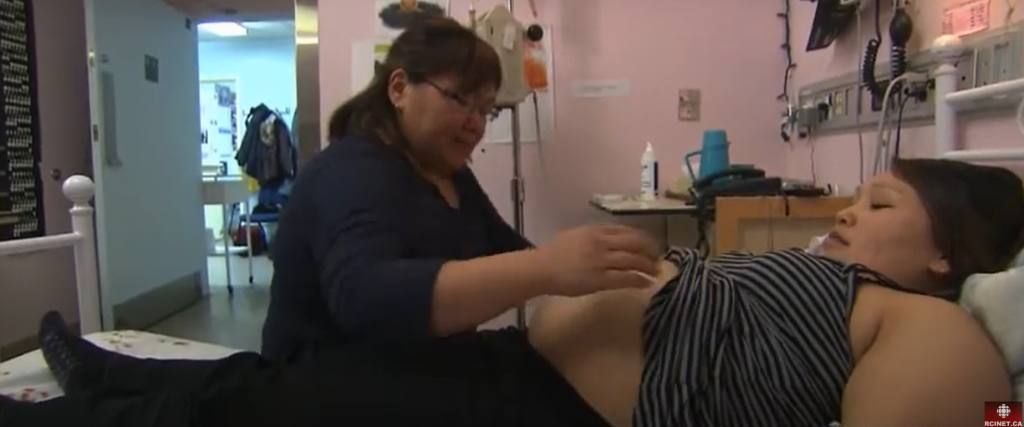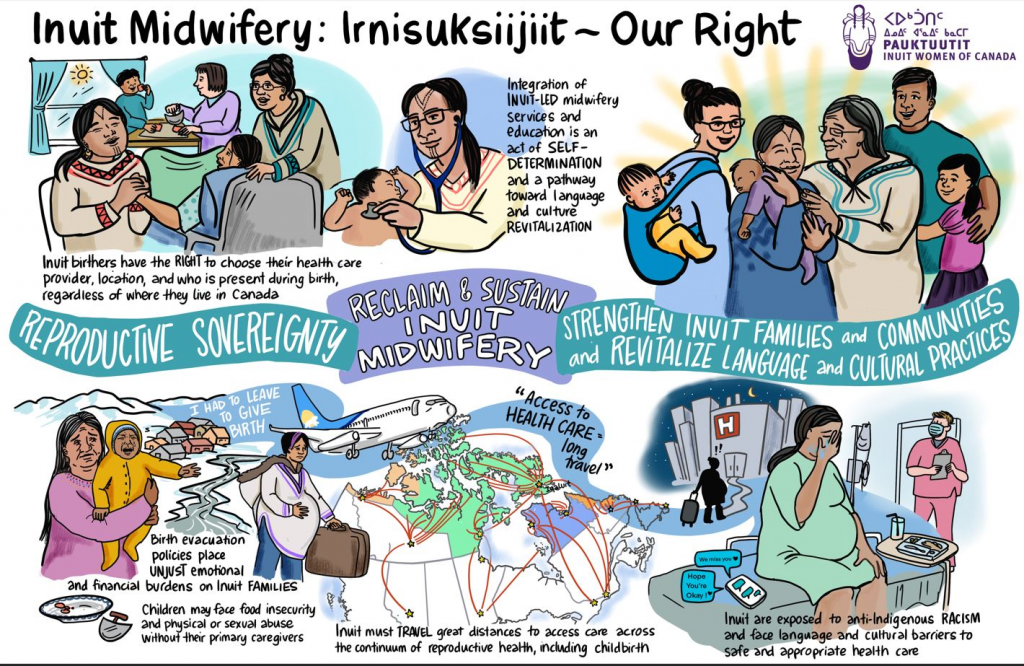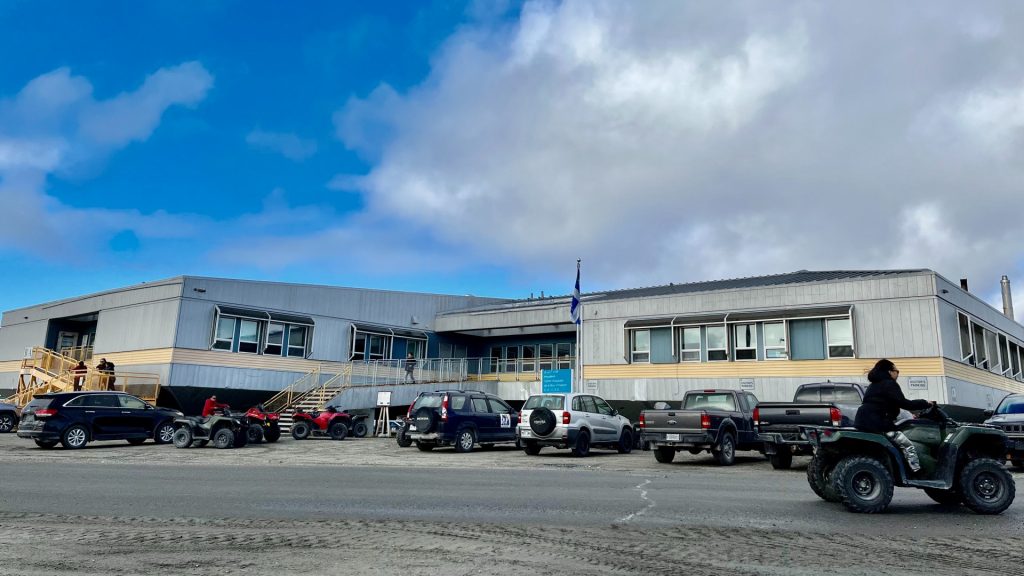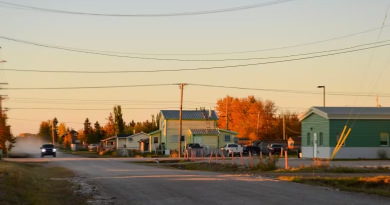Inuit women’s org calls for enhanced midwifery services in Arctic

In a new report, Pauktuutit Inuit Women of Canada said there’s a critical need for enhanced access to midwifery services and culturally sensitive birthing practices among Inuit women in the Arctic to address health disparities in Canada.
“Pauktuutit is leading advocacy and support for the revitalization of Inuit midwifery in Canada,” Nancy Etok, president of the organization said in a video statement.
“Access to midwifery services must be recognized as a primary health and cultural right , Pauktuutit’s efforts should be met with clear legislative funding and commitments.”
The report “Improving Access to Sexual and Reproductive Health Service across Inuit Nunangat” came out of the National Inuit Midwifery Forum held in March 2023 co-hosted by Pauktuutit and the National Council of Indigenous Midwives.
Stress from family separation
The report said there was clear consensus from forum participants that Inuit women having to leave their communities to give birth results in a negative impact on their experiences within the healthcare system, separating them from their families and cultural support networks.
“For Inuit living in regions without Inuit midwives, evacuation for birthing usually requires living in a congregate living facility with other Inuit travelling for medical reasons or in a hotel room without a kitchen or laundry facilities for three to six weeks, and sometimes longer,” the report said.
“Neither arrangement meets the needs of expectant Inuit or their families. The length of time away from home can make it impractical, and prohibitively expensive, for partners and small or school-aged children to come along. Family separations create substantial stresses and risks during a time when the focus should be on preparing to welcome a new family member.”
Birth evacuation policy “financially unsustainable” says report
Establishing midwifery services in communities would not only help address these longstanding issues but also alleviate the considerable financial burden associated with maternal evacuation from the Arctic.
“Not only is the birth evacuation policy financially unsustainable, it also diverts staggering amounts of potential healthcare funding away from building adequate and appropriate reproductive health and neonatal care infrastructure and health human resourcing within Inuit communities: funding that could be used to grow and sustain access to Inuit midwifery and better support Inuit during pregnancy, childbirth and post-partum,” the report said.

Nunavik is an example of what might be possible across the Inuit homeland in Canada when it comes to midwifery, the report said.
There, the Inuulitsivik Inuit Midwifery Program, trains midwives locally, enabling mothers in the communities where the services are available to give birth near home.
“They are the gold standard for Inuit Midwifery Care and what other Inuit regions are striving toward,” the report said.
“There have been over 900 births in Inukjuak since 1998 and midwives are involved in most births. This provides clear evidence to support the return of birth to remote communities.”
Etok said there’s overwhelming evidence of the benefits of midwifery programs for Inuit communities, and that reliable funding is needed to replicate the kind of success seen in places like Inukjuak.

“Inuit centered and culturally appropriate health models and services must be supported by governments with targeted long-term investments to address meaningful progress towards reconciliation,” she said.
“Pauktuutit is disappointed in the lack of funding directed to this initiative in the recent federal budget.”
Pauktuutit issued the report in advance of the International Day of the Midwife on May 5.
Comments, tips or story ideas? Contact Eilís at eilis.quinn(at)cbc.ca
Related stories from around the North:
Canada: Birthing services temporarily paused at Inuvik hospital due to staffing shortages, CBC News
Finland: Fewer than 50,000 births in Finland last year, Yle News
Sweden: Giving birth in a car: a real rural problem in Sweden, Radio Sweden



